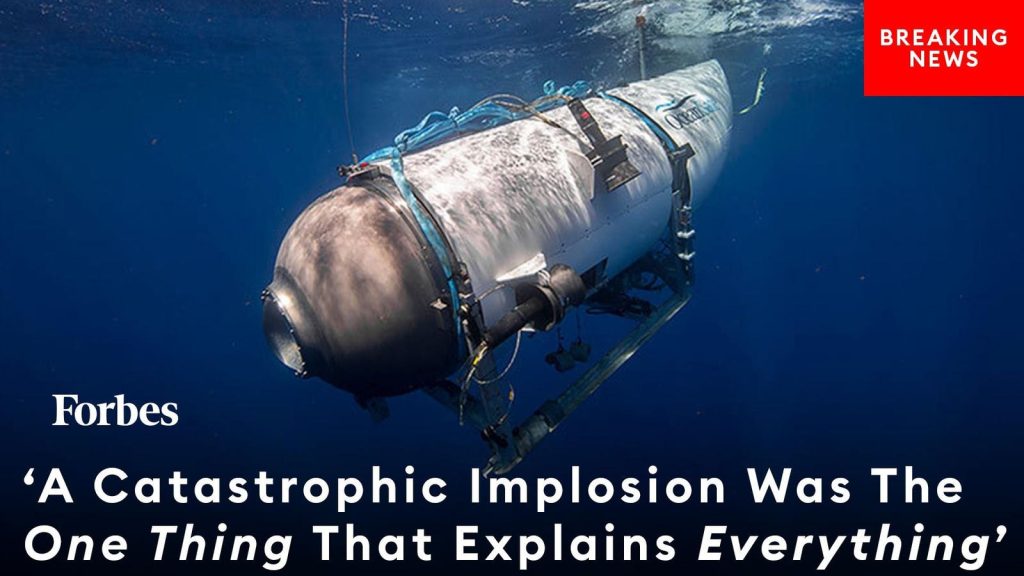The Coast Guard announced Thursday that a “catastrophic implosion” killed all five passengers on the submersible that was voyaging to the Titanic wreckage. “A catastrophic implosion was the one thing that explains everything,” Chris Roman, a professor of oceanography at The University of Rhode Island, tells Forbes. “This is a high energy event, so it’s over in an instant, a millisecond, probably.”
Back in 2021 interview, Stockton Rush, the CEO of OceanGate Expeditions, the company that owned and operated the Titan vessel, said that he would “like to be remembered as an innovator” and “I’ve broken some rules to make this. I think I’ve broken them with logic and good engineering behind me, the carbon fiber titanium, there’s a rule you don’t do that. Well, I did.” Roman calls those comments “cause for concern,” adding “I don’t think it’s crazy to try and innovate … but you have to do it with obeying some of the best practices.”
What type of precedent does this tragedy set for deep sea exploration? Roman believes it is a “double-edged sword” for adventure tourism. “Oceanography’s benefited from the Titanic,” he tells Forbes, before adding, “the Titanic is also a graveyard, and it is bigger culturally than any small number of individuals who want to visit it, so that has to be respected.”
Read the full article here










